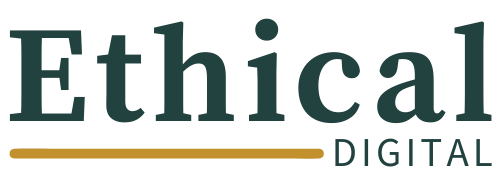The Burden Caused by COVID-19
Its Impacts on Social Media Use, Control, and Anxiety
The uncertainty that followed COVID-19 left us without much of the control we once had. In the aftermath of this loss, we found ourselves resorting to negative coping mechanisms, the most prominent of which was excessive social media use.
In Julia Brailovskaia and Jurgen Margraf’s study, “The relationship between burden caused by coronavirus (Covid-19), addictive social media use, sense of control, and anxiety,” they asked: could indulging in social media cause symptoms such as nervousness, frustration, and a loss of power beyond what we’ve previously experienced?
And if that had been the case, what was the underlying cause of these addictive tendencies and changes to our mental health? Could the pandemic have been responsible?
Since When Did I Become So Addicted to Social Media?
Well, in short, since the emergence of COVID-19. Amidst a wave of confusion and chaos, you sought an escape, and that escape was the Internet: a place of stability, immediate gratification, and control.
But we don’t blame you. You were in crisis mode and acted in a way that was quite rational. And you certainly weren’t the only one.
This phenomenon—described as addictive social media usage—was explored by Brailovskaia and Margraf in a study of 550 social media users. According to their analysis, factors such as anxiety, control, and addiction all played a part in this seemingly mindless act.
They found that those who were typically more anxious or had less control of their lives were more likely to feel a heavier burden during the pandemic and cope with social media. In comparison, those with greater control and fewer anxiety symptoms were less affected, and thus, less likely to fall into the trap of social media addiction.
Interestingly enough, there was one exception to this rule—individuals who felt a loss of control but showed no signs of anxiety. Although this person may have felt a sense of loss like some of their peers, they did not exhibit the same level of addiction to social media as someone with medium or high levels of anxiety.
Could anxiety have been the culprit behind this?
Is My Addiction to Social Media a Result of Something Deeper?
COVID-19 undeniably impacted our everyday lives, from our work schedules to our leisure activities. Given the many government restrictions and stay-at-home orders, individuals began to feel an absence of independence and freedom.
Naturally, this perceived loss of control resulted in a desire to regain it. In most cases, this was achieved online rather than offline, since the online world offered individuals a way out of the everyday pressures they faced, and provided them with control over their behavior and self-presentation. And unlike the real world, there were no limitations, and users had full power.
This shift over to the digital world placed a sense of control over the individual’s daily life, something that was lacking offline. The experience proved to be rewarding and led some people to form a strong emotional connection to social media and subsequently, a desire to remain online.
It makes sense, doesn’t it?
Being constantly connected presents us with the luxury of not feeling the loneliness or isolation we would experience otherwise. And, who wouldn’t want something like that?
Although excessive use of social media might seem like a good idea at the time, it can negatively impact your mental health and lead to addiction down the line. In fact, the study concludes that social media addicts report feeling less in control than they ever did before, becoming entangled in a never-ending cycle of control-seeking.
How Can I Curb the Long-Term Consequences and Overcome My Social Media Addiction?
The good news is that there are many ways to break this cycle. For one, understanding how anxiety affects you will help you handle it more effectively. With time, you will be able to overcome situations of seeking control and eventually refrain from turning to social media for relief.
But that isn't the only way to go about it.
Individuals who are frequently stressed and anxious can also regain control by participating in a variety of physical activities. Exercise can help with reducing the amount of time you spend on social media and act as a buffer against symptoms related to depression and stress.
You can practice mindfulness techniques, which can help you better deal with anxiety and addiction. And you guessed it: By becoming more aware of the present moment through mindfulness, you will be better equipped to manage the challenges of daily life, such as pandemic pressure.
All of this builds resilience, which is essential for mental health. People who are resilient often possess high levels of self-esteem and control, along with strong problem-solving abilities—all of which are helpful attributes when coping with COVID-19.
The important thing to remember is that you aren't at a dead end. As a matter of fact, you are just getting started. By regularly engaging in physical activity, mindfulness exercises, and resilience-building, you'll be more prepared to deal with the ups and downs of life's unexpected hurdles—like living through a global pandemic.
Study Objective & Methods
The Relationship Between Burden Caused by COVID-19, Addictive Social Media Use, Sense of Control and Anxiety
Julia Brailovskaia, PhD, Clinical Psychology and Psychotherapy; Jürgen Margraf, Mental Health Research and Treatment Center
Researchers studied how addictive tendencies evolved in relation to social media usage throughout the pandemic.
The study was conducted to determine the potential negative consequences and practical implications of social media usage, with a focus on the nature of the relationship between the burden caused by COVID-19, an individual’s sense of control, anxiety symptoms, and addictive tendencies.
Become E Certified
This research (and all our social media and well-being articles) have laid the foundation for our E Certification training: a 3-course program for anyone wanting to approach social media and communications in a way that protects well-being and puts people first. Learn more here.


